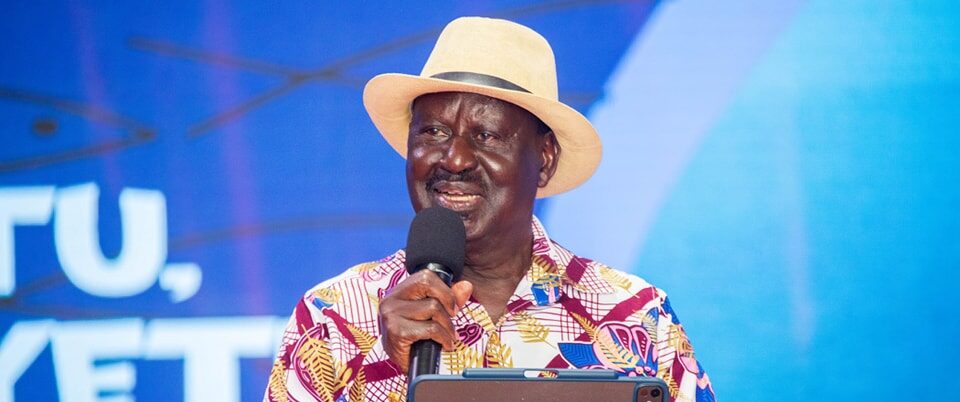By Musa Maridhawa
As the echo of the seventeen-gun salute thundered through Nyamira village in Siaya County, something quite remarkable in Kenya’s political life quietly took root. The passing of Raila Amolo Odinga—the revered opposition leader who never wore the ultimate political crown—presented not a trigger for division, as some might have feared, but a catalyst for a collective national awakening.
From the moment Raila’s departure was announced until his final journey home to Bondo, Kenyans exhibited a profound sense of self-honour, momentarily shelving the divisive politics that have long characterised public life. In doing so, they revealed a mature national soul, distinct from the manipulations of political rabble-rousers. That dignified response, in my view, stood far greater than the indecorous conduct displayed by a handful of unruly hoodlums who mingled with genuine mourners at one point or another.
Though the outpouring of grief was immense, its expression was uniquely unifying. Across the capital, Nairobi, and in political strongholds like Kisumu, the atmosphere was heavy with a sorrow that sidestepped ethnic and political allegiances. The traditional green branches themselves local symbols of mourning and dignity, were seen tied to cars, buses, and motorcycles not only in western Kenya but throughout the nation.
This was not a partisan symbol. It morphed into a national statement—a shared loss that pierced the heart of virtually every community in the land. The crowds that gathered, whether at Nyayo National Stadium or lining the streets to pay their respects, did so with poignant dignity. Mourners wept, sang, and chanted in honour of the departed “buffalo,” celebrating his bravery and legacy. They filled the air not with anger, but with a respectful celebration of a life that shaped the history of their motherland.
This collective spirit was perhaps most powerfully embodied in the state funeral itself. Here was a man who had spent decades challenging the state, even being imprisoned for years without trial by the very establishment—albeit under different leadership—that now honoured him with full military rites. It was a moment that acknowledged a complex legacy beyond the petty fray of daily politics.
As one political analyst noted, Odinga was buried by his former adversaries, yet the ceremony felt less like a victory for any one side and more like a national reckoning. What a closure to a monumental chapter in Kenya’s story!
The state, which had once fired tear gas and bullets at his supporters, now stood in respectful silence, its formal honours signalling a truce that the nation itself had already embraced.
At its core, this period of mourning revealed a public weary of the old political playbook. The citizenry seemed to instinctively understand that some moments demand an elevation beyond partisan squabbles. Raila’s widow, Ida Odinga, captured this sentiment when she appealed to Kenyans to uphold peace and unity, reminding them that her husband “hated dishonesty and greed”—a pointed commentary on the ills that so often plague political life.
The attitude of a good majority of Kenyans during this period of mourning indicates that our populace is now ready to claim a well-defined national identity. It is an identity forged not in the fiery rhetoric of politicians seeking the limelight, but in a shared recognition of what truly unites Kenyans. That identity expresses a common hope for dignity, justice, and a stable democracy.
The notion that this unity signifies a nascent, resilient national soul is inescapable. For too long, the political narrative has been driven by ethnic arithmetic and personal ambitions. Yet, in the face of Raila’s passing, Kenyans demonstrated that the nation is more resilient than its political class often believes. They proved, beyond doubt that there is more that unites them than divides them.
The silence that followed the gun salute in Bondo seemed a collective deep breath—a moment of national reflection where the noise of divisive politics was hushed by the far louder demand for unified honour. In this, Kenyans have shown the world, and more importantly themselves, that their national spirit is not for politicians to define, but for them to live and uphold.
As the organic drive for deeper common purpose draws the nation and her citizens ever closer, the true caretakers of Kenya’s soul have made their presence powerfully felt. We owe ourselves the better Kenya we both desire and deserve.
Maridhawa is a Kilifi-based ethnographer



